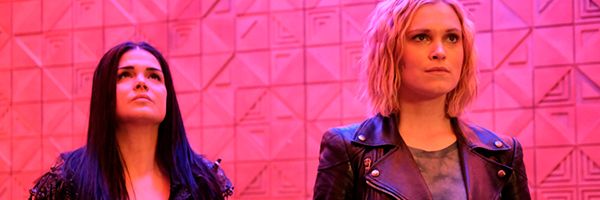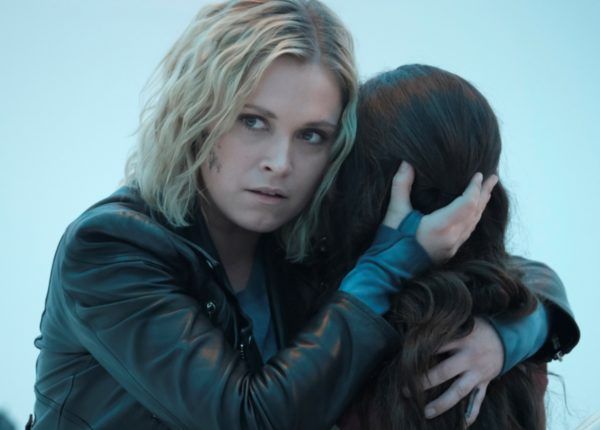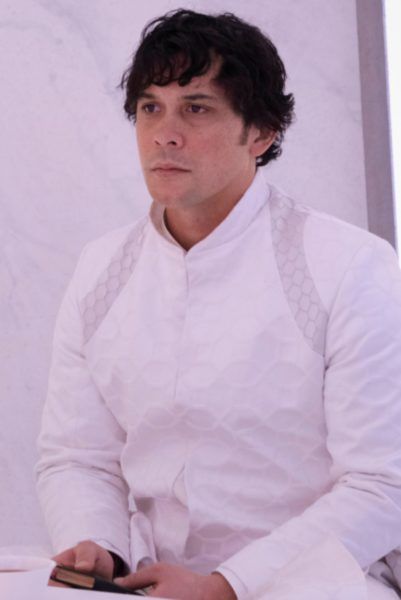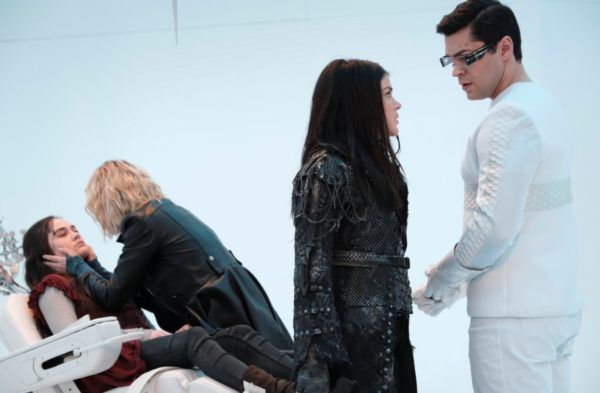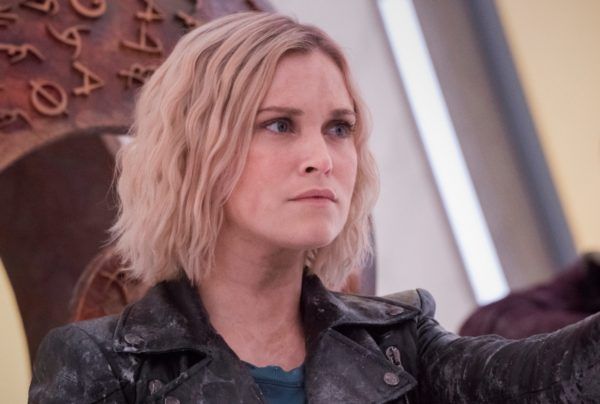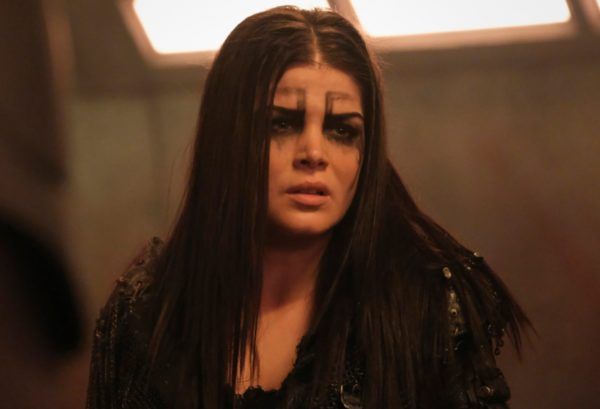*Be aware that major spoilers for The 100 series finale are discussed*
After seven seasons and all of the trials and triumphs, The CW series The 100 has come to a close with its characters facing the ultimate test of survival and sacrifice. The final episode was both a look back and a glimpse forward, as Clarke (Eliza Taylor) and her friends finally understood their true purpose.
During this 1-on-1 phone interview with Collider, show creator Jason Rothenberg talked about why he wanted to explore humanity’s propensity to fight and destroy, giving Octavia (Marie Avgeropoulos) her moment on the battlefield, Murphy’s (Richard Harmon) unexpected journey, the importance of Lexa (Alycia Debnam-Carey) to Clarke, getting to watch Eliza Taylor grow as an actress, the biggest challenge of the series finale, and his hopes for the possible spin-off series.
Collider: When we first spoke at the start of the season, you told me that the biggest threat of Season 7 just might be humanity’s propensity to fight because we could all be doomed, if we never get over that. Why was that something that you really wanted to explore and dig into in this last season, and then leave that choice up to them?
JASON ROTHENBERG: I mean, look out the window or turn on the TV. Until we, as a species, realize that we’re all in this together, we are doomed. I feel like end times are definitely upon us. At some level, it feels like that. With this show, we were trying to say that until we make that realization, things will be bad. Once we do, then we can transcend and go to whatever comes next for us, as a species.
Why was it important to give Octavia that moment on the battlefield and essentially have her end the war when she’s also been the cause of so much bloodshed?
ROTHENBERG: That’s a great question. I feel like she’d learned the lesson of Wonkru, which is what she was applying on a global level now. She did not quite get that, at the end of Season 5. We arced her, over the last two seasons, to a zen Octavia place, so it just made sense to me that she was the one that got it first and was going to have that battlefield moment where she honors her brother and the fact that he saw it first, and convinces both sides, starting with her side, Wonkru, to lay down their weapons. It felt like poetic closure.
With everything that he did, it’s amazing that Murphy made it to the end. What did you most enjoy about his character journey and are you surprised that he actually made it to the end of the series?
ROTHENBERG: No, I’m not surprised. First of all, I adore Richard Harmon. I think he is just such a special talent and as a cockroach, as we call him on the show, I knew he was gonna be there. There were definitely moments where we talked about, maybe he’s the only person that survived because the cockroaches are gonna outlive us all. I loved everything about working with him, to be honest with you. From the beginning, from the pilot, he jumped and leapt off the screen. He was John #1 in the pilot. He didn’t even have a last name. He was such an asshole, for lack of a better word, as a character in Season 1. I remember, at the end of Season 1, I said to Richard, “I feel like we left something on the table with that character.” We didn’t dimensionalize him enough and I really wanted to do that in Season 2. And right away, in the beginning of Season 2, we had those scenes with Raven in the drop ship, after he shot her, where he talks about why he is the way he is, and immediately the audience was with him. Transforming it from there, all the way to the romantic lead almost, certainly of his own story, to me, was a special arc. I think a lot of that is attributable to Richard’s talent. And by the way, early in the season, he pitched me the idea for the ending of his character and I was like, “Oh, my God, that’s beautiful.” He did it on video, and I’d like to be able to share that, at some point. I’ll talk to him about it. It stuck. I’m always looking for good ideas from everywhere.
There’s always been a lot of controversy surrounding the death of Lexa. What was it like for you to be able to bring that character back and have some sort of closure with that storyline, and to get Alycia Debnam-Carey back? Was that hard to do to, logistically?
ROTHENBERG: First of all, it was amazing to get her back in the costume and in the make-up. Was it hard? She was game, for sure. I had to have multiple conversations with her to explain exactly what we were going for and what it was, and that we weren’t doing it in an exploitive way, at all. And so, ultimately, yes, she was totally game and up for it. I’m very, very grateful that she did it and I’m grateful that I was able to direct those scenes with her and with them.
Because so much of Clarke has been defined by that relationship, even though it’s been absent for awhile now, how did Eliza Taylor also feel about those characters reuniting?
ROTHENBERG: Timing is weird. We live in a world where the show lasted seven or eight years, and yet for them, it hasn’t been as long but [Lexa] is the love of [Clarke’s] life. I can’t speak for Eliza. She would have to answer that question. I know that it was really great having them together. We had a lot of fun on those days. I felt a lot of pressure, as the director, having the responsibility of honoring that character, and yet realizing that it wasn’t actually Lexa and knowing that we had to find the line of how much Lexa to bring to it. Alycia did a good job of showing moments where we see Lexa and moments where it’s clearly not her.
How do you feel about the journey that you took Clarke on, in this series overall, as well as specifically in this final season, and what was it like to see what Eliza Taylor did with the material, from season to season?
ROTHENBERG: I feel like watching Eliza Taylor grow as an actress, from the beginning, was really a special experience. She was great from the beginning but when she found her legs as the lead, she took ownership and was like, “This is my show and I’m gonna set the example. I’ll just show up first and I’m gonna work the hardest.” That was really great to watch. As an actress and as a performer, she got even more confident as the season went on. As a character, I wouldn’t call Clarke our hero. She’s definitely our protagonist and our perspective character but she did some awful things. She’s deeply flawed and ultimately broken and, on some level, controversial in the fandom because of that. One of the things I’m proudest of is that we were able to subvert expectations of a protagonist. At the beginning of the run, early on in Season 2 when she pulled the lever in Mount Weather, we cheered for that, even though it was a horrible thing that she was doing. Now, in Season 7, she’s done horrible things to protect Madi but it’s against people that we love too. The audience was in the seat of someone in Mount Weather. We know what it feels like to be on the other side of Wanheda and it isn’t so comfortable for people. She’s broken by the end of the story and she goes full angel of death in the finale.
Had you always felt as though Clarke would survive to the end of this story or was there ever a world where she didn’t make it to the end of the series?
ROTHENBERG: There definitely were times where we thought that she might not make it to the end but, like I said, she’s our protagonist and our perspective character and it made the most sense to have her survive to the end. I love the idea that, like Moses at the end, she’s not allowed into the promised land. But unlike Moses, although I don’t know the story of Moses well enough after the promised land denial, her friends are there. They’ve chosen to stay with her because of how much she sacrificed for them, of herself and of her soul.
What would you say was the biggest challenge for this last episode? Was it something production related?
ROTHENBERG: First of all, I had never directed before, so that would be a huge challenge for me. COVID snuck up on us, as it did the world, and we got the call with three days left to shoot that it was over and shutting down, so we had to shoot incredibly quickly. Essentially, we did three days of shooting in two days. That was easily the biggest challenge. But on a directorial level, production wise, the biggest challenge for me was the scene in the woods with the battle because there were a lot of people there and lots of action and we had two days to shoot it. And in the same two day period, we had to shoot the final scene on the beach. To say that we were rushing through is an understatement, to get it done.
How are you feeling about where things are at with the spin-off? Are you still hopeful that will happen?
ROTHENBERG: I’m totally hopeful. It’s obviously nail-biting time. COVID really changed everything. Decision-making is weird and it’s taking longer than it should or would normally, and yet conversations are taking place. I have really very little to do with it, at this point. I’m just waiting for the phone to ring. I’ll hear about it probably five minutes before the rest of the world hears about it.
Christina Radish is a Senior Reporter of Film, TV, and Theme Parks for Collider. You can follow her on Twitter @ChristinaRadish.

